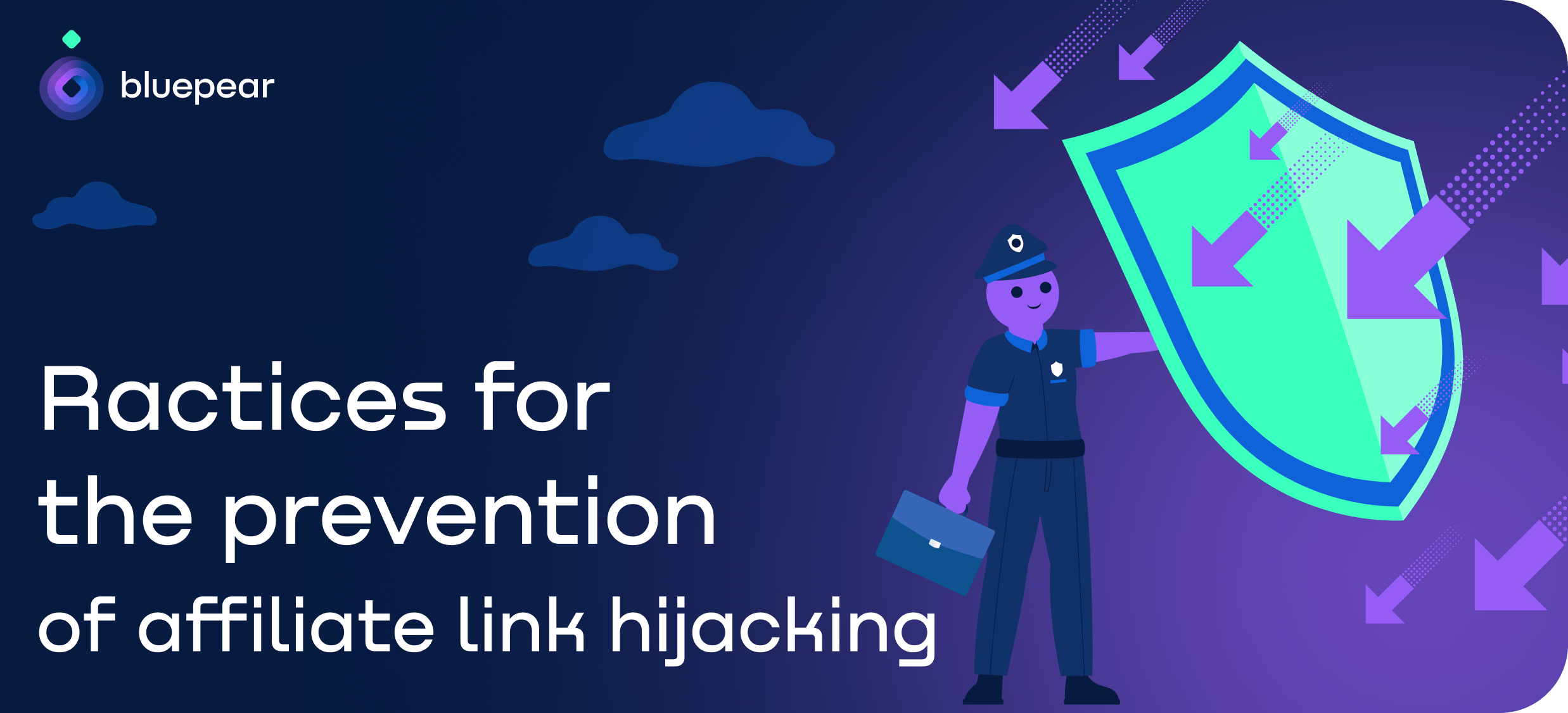
Contents
Affiliate marketing has proven to be pivotal in promoting businesses online, allowing companies to extend their reach and increase sales through partnerships with affiliates. However, since its inception, this niche was plagued by unethical conduct. To this day, violations such as affiliate link hijacking pose significant threats to the sustainability of affiliate programs.
In this article, we explore the concept of affiliate policy violation, discover what is affiliate link hijacking and learn how to prevent affiliate hijacking to ensure sustainable marketing campaigns.
WHAT IS AFFILIATE VIOLATION POLICY
Affiliate programs involve agreements between businesses and content makers, known as affiliates. Affiliates leverage their online platforms to promote products and services to their audience, and in return, businesses pay them commissions. These collaborations proved to be extremely effectively for marketing purposes while also benefiting both sides of the agreement. As a result, it is hard to imagine modern marketing with affiliate programs and partnerships with influencers. However, as with all advertisement and marketing, affiliate programs became subjects of regulation to prevent deceptive conduct and misleading of the customers. As the field expanded, so did various affiliate violations, involving fraud, affiliate hijacking, brand abuse, and infringements. To reign into affiliate violation, authorities and private actors extended advertisement regulations to include affiliate violation policy, countering different forms of violation.
TYPES OF AFFILIATE VIOLATION
Businesses and affiliates are both expected to recognize and counter all forms of affiliate violations. Detection and prevention allow for ethical and sustainable affiliate programs and reduce the risk of legal troubles and affiliate hijacking. There are few common types of affiliate violation and common practices to combat them.
Trademark Infringement Trademark infringement is an unauthorized use of a brand’s intellectual property for commercial aims. It is a common affiliate violations, as affiliate will often confuse or even deliberately use branded trademarks outside of agreed upon terms.
To combat trademark infringement, businesses must actively monitor affiliate activities, promptly address any violations, and establish clear guidelines for the use of trademarks within their affiliate program agreements. By doing so, companies can maintain control over their brand image and prevent unauthorized use of their trademarks.
Brand Bidding Brand bidding involves affiliates bidding on a company's branded keywords in pay-per-click (PPC) advertising campaigns, often known as brand bidding affiliate marketing. It can lead to increased advertising costs for the business, as affiliates compete for the same keywords and result in dilution of the brand's online presence as customers become confused about the brand represented.
To mitigate the impact of brand bidding, companies should implement strict policies prohibiting affiliates from bidding on their brand terms in PPC campaigns. Regular monitoring of ad campaigns and proactive enforcement of these policies are crucial to maintaining a fair and competitive advertising landscape.
Affiliate Link Hijacking Affiliate hijacking, one of the most insidious affiliate violations, occurs when unscrupulous individuals manipulate or steal affiliate links to redirect traffic and commissions to their own accounts. Affiliate hijacking is an extremely deceptive practice, as affiliate hacker can undermine the efforts of legitimate affiliates and pose a direct threat to the profitability of affiliate programs.
To prevent affiliate link hijacking, businesses can employ technologies such as link encryption and robust tracking systems. Regular audits of affiliate links and the implementation of secure tracking mechanisms can deter malicious activities such as hijacking ads and safeguard the integrity of the affiliate program from affiliate hijacking.
Affiliate policy violation has far-reaching consequences that extend beyond immediate financial losses. Affiliate programs can be severely compromised by the decline in trust among affiliates and potential customers.
HOW TO PROTECT AFFILIATE INTEGRITY
Preventive Measures against Affiliate Hacker To fortify affiliate programs against potential violations, businesses should adopt proactive measures:
Clearly Define Policies: Establish comprehensive affiliate program agreements that clearly outline the rules and restrictions governing affiliates' promotional activities. Clearly define the acceptable use of trademarks, bidding practices, and consequences for violations.
Educate Affiliates: Provide affiliates with training and resources to ensure they understand and adhere to program policies. Regularly communicate updates and changes to policies to keep affiliates informed.
Monitor Affiliate Activities: Implement robust monitoring systems to track affiliate activities and identify potential violations. Regularly audit affiliate websites, promotional materials, and ad campaigns to ensure compliance with program guidelines.
How to Prevent Affiliate Hijacking Preventing affiliate link hijacking requires a proactive approach and the implementation of secure measures:
Implement Secure Tracking Systems: Utilize advanced tracking systems that employ encryption and other security measures to safeguard affiliate links from an affiliate hacker.
Regularly Audit Affiliate Links: Conduct regular audits of affiliate links to detect any unauthorized changes or redirection. Promptly address and rectify any suspicious activities.
**Provide Affiliate Training: ** Educate affiliates on the risks of affiliate hijacking and the importance of maintaining the security of their links. Encourage the use of secure platforms and practices.
Legal Considerations and Enforcement Understanding the legal aspects of affiliate marketing is essential for effective enforcement against violations:
Trademark Protection: Register trademarks and enforce intellectual property rights to legally protect the brand. Take swift legal action against affiliates engaging in trademark infringement to prevent further damage.
Affiliate Agreements: Draft comprehensive affiliate agreements that include clauses specifying consequences for violations. Clearly outline the legal ramifications of unauthorized actions, providing a strong foundation for enforcement.
Collaborate with Legal Professionals: Consult with legal professionals specializing in intellectual property and digital marketing to stay abreast of legal developments and receive expert guidance on enforcing affiliate program policies.
CASE STUDIES AND SUCCESS STORIES
Amazon Associates Program Amazon employs a stringent approval process for affiliates, closely monitors their activities, and has a robust reporting system to detect and address violations promptly. This approach has contributed to the program's continued success.
eBay Partner Network
eBay actively monitors affiliate activities and employs a combination of technology and manual reviews to identify and address violations. The program's success lies in its commitment to maintaining a fair and secure environment for affiliates.


